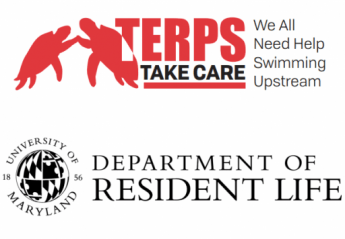We’ve all heard it a million times since March: wash your hands for at least 20 seconds, six to ten times a day. Don’t touch your face. Stay six feet away from others. Wash your hands. Use soap. Wear a mask. Wash your hands.
These are some of the best and most obvious tools for staying healthy. They’re very salient right now due to COVID-19, but they are good rules for avoiding sharing any of the viruses that tend to peak right around now. Following them can help protect you from the flu and other contagions.
However, there are lots of other things you can do to support your physical and mental health right now – things that can help support your body’s resilience, strength, and immune response. Make sure you are taking a balanced approach in all the areas outlined below!
HANDWASHING DANCE [ORIGINAL]- “GHEN CO VY” | By Quang Dang
1. Get enough sleep. Last February, we shared Sleep Hygiene for Spring Semester, which outlines the best ways to ensure that you are getting enough good, restful sleep – and includes some extra links, too. The highlights? Get up and go to bed at the same time every day (preferably, earlier on both sides!), plan your day hour by hour (including time for socializing and doing enjoyable things), create a bedtime ritual to help get you sleepy, and limit your caffeine intake and your naps.
2. Eat well. Make sure you’re eating enough and regularly – even if you have to set an alarm to remind you to eat. Take snacks along with you when you know you’ll be busy. There’s nothing wrong with pizza and sweets, but try to make sure you have a healthy balance of protein and veggies as well. Make sure you’re consuming enough Vitamin C and other immune-supporting nutrients and vitamins, and don’t forget to drink lots of fluids. As it gets colder, hot tea – especially non-caffeinated! – can be a great way to stay hydrated, healthy, and warm.
3. Don’t stretch yourself too thin. It can be very hard to manage this one in the midst of finals, the holidays, and more. However, making sure you have time to relax, socialize, and do enjoyable things is vital to avoiding burn-out in both the mind and the body. Make sure to set aside time to find your peace. Check out our Managing Mid-Year Stress Mini-Guide to help find some ideas for taking good, refreshing, and rejuvenating breaks.
4. Get your sunlight! Shorter days means fewer sunlight hours – so make it a point to open your blinds during the day, or go for a walk when you can. You can also access Verilux HappyLights through the McKeldin Library Tech Desk. The HappyLights (commonly known as SAD lamps. or Seasonal Affective Disorder lamps) mimic sunlight and can be loaned on from the Tech Desk. Due to COVID, there is a new process students should use to access the HappyLights.
- First, fill out the Fall 2020 Tech Desk Equipment Request.
- The Verilux HappyLight is not on the listed equipment, but you can write that you are requesting a HappyLight in the “notes” field, and check off no boxes under “requested equipment.”
- Requests should be made at least a week in advance due to limited on-site staff.
- The light will be picked up curbside, not in the actual building.
- If you have further questions or problems with this process, email tlc@umd.edu.
5. Check your wellness wheel. Take some time each day to check in on your wellness wheel. How are you feeling in each area of wellness? Do you need to implement something into your weekly routine to make sure you feel nourished across the board? All these areas interact with and influence each other, so one of the best ways to make sure you stay healthy is to also stay “well.”

6. Don’t forget to ask for help. Whether it’s talking to your doctor because you’re not feeling physically well, or reaching out to the Counseling Center or Resident Life staff for some extra emotional support, remember: we all need help swimming upstream.

